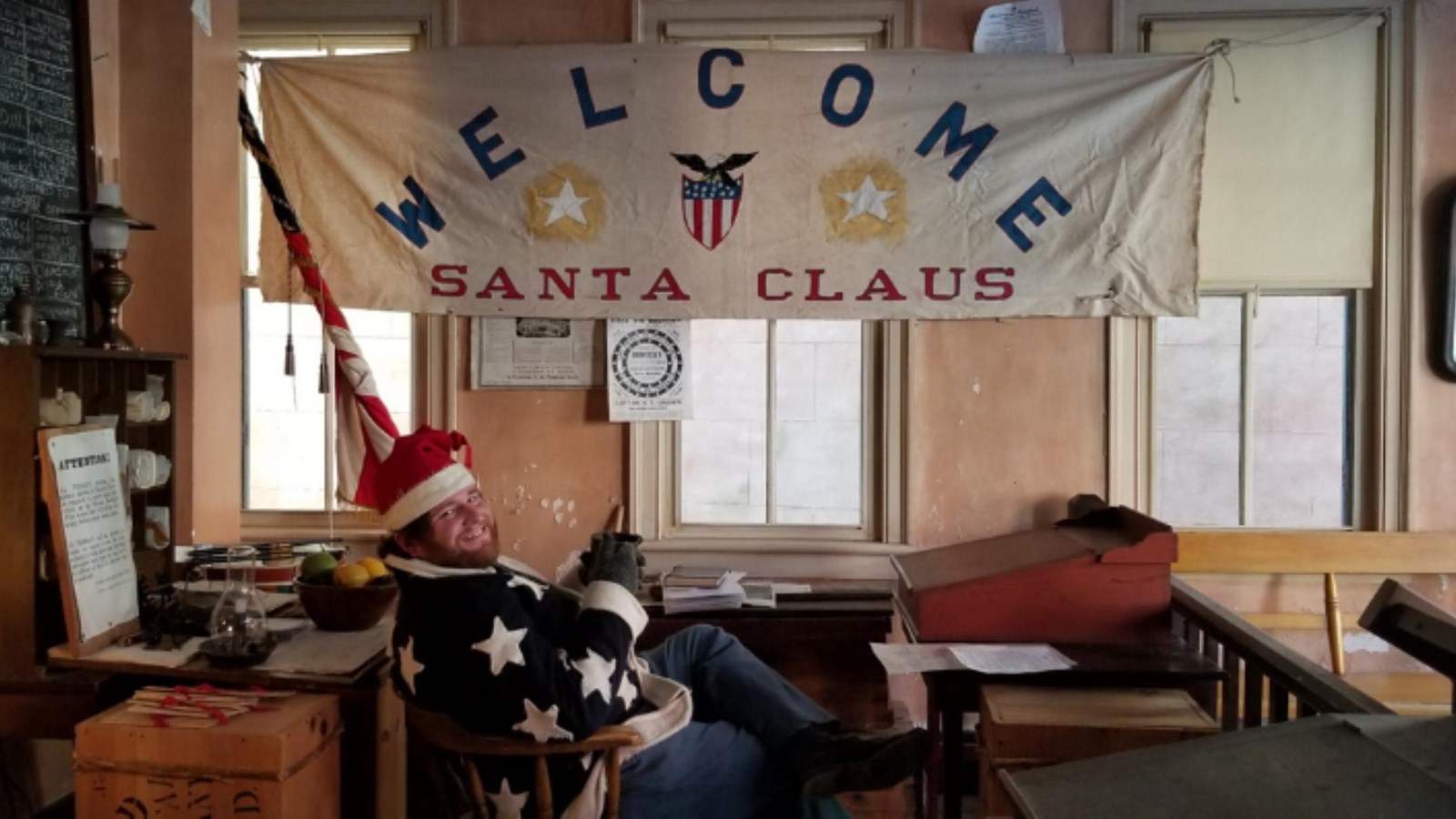Last updated: October 10, 2024
Place
Prospects of Peace 1864 Tour: Provost Marshal, Chief of Military Police

NPS Photo
Historical/Interpretive Information/Exhibits
You are standing in front of the Union Provost Marshal’s office. It’s December 1864. The country is thinking about the recent contentious presidential election. Abraham Lincoln’s second election hinged on the success of Union General Philip Sheridan’s Valley Campaign, which brought the inevitable end to the conflict ever closer. The prospect of peace is around the corner; the Civil War will determine the Union of the States and eventual freedom of four million enslaved people.
Here in Harpers Ferry, the Provost Marshal and his Provost Guard policed military and civilian activities. Harpers Ferry changed hands eight or more times during the Civil War. Most of the time it was occupied by the Union Army. Harpers Ferry was perceived as enemy territory, and the Union Army assigned an officer as Provost Marshal with a Provost Guard to act as a military police force. The Provost Marshal dealt with prisoners of war, spies, and guerilla fighters, as well as drunk, disorderly, or deserting soldiers, and even unhappy or disloyal civilians. Enslaved people fleeing slavery who made their way to Union lines also fell under the Provost Marshal’s jurisdiction. The Provost Marshal had the authority to regulate military and civilian life under martial law with great authority. He could jail, punish, or even execute offenders of military law.
This November 1864 report from Philip Sheridan to Major General Halleck demonstrates Sheridan’s scorched-earth policy: “I will soon commence on Loudoun County, and let them know there is a God in Israel. By loss of property and comforts they will cry for peace.” Young Charles Moulton of the 34th Massachusetts Regiment, a Provost clerk, noted Sheridan’s success against disloyal Loudoun County. “During the past few days, a large force of Sheridan’s Cavalry has been operating in Loudoun County and are destroying all the barns with contents, burning all the grain, hay, and cleaning the county all around of everything that possibly can afford shelter or aid to the prowling guerrilla bands that have infested the region for so long a time. I can see from the window now the reflection of the fire glowing on the horizon, showing how completely the work of devastation is being carried out.”
